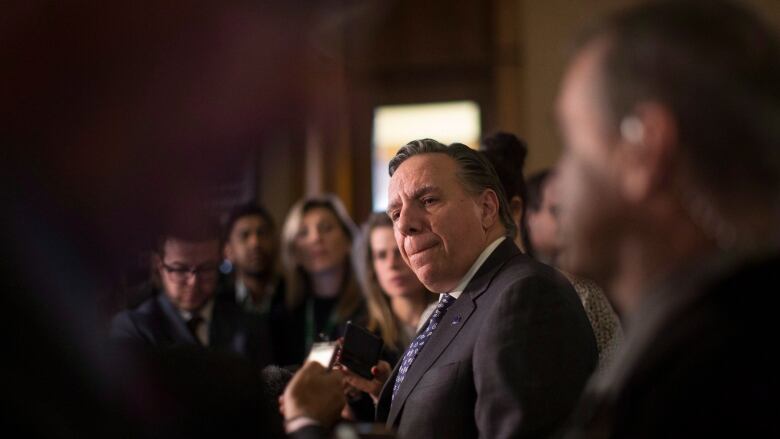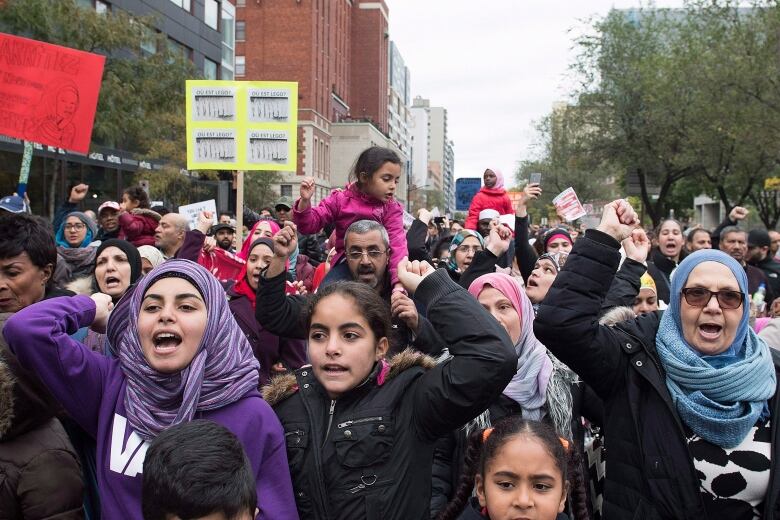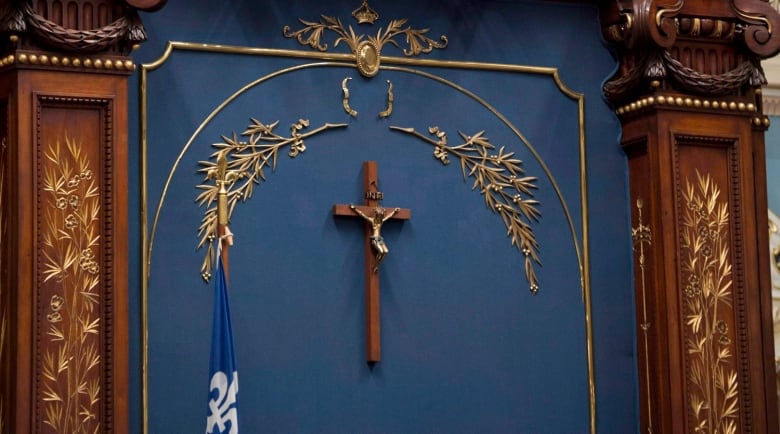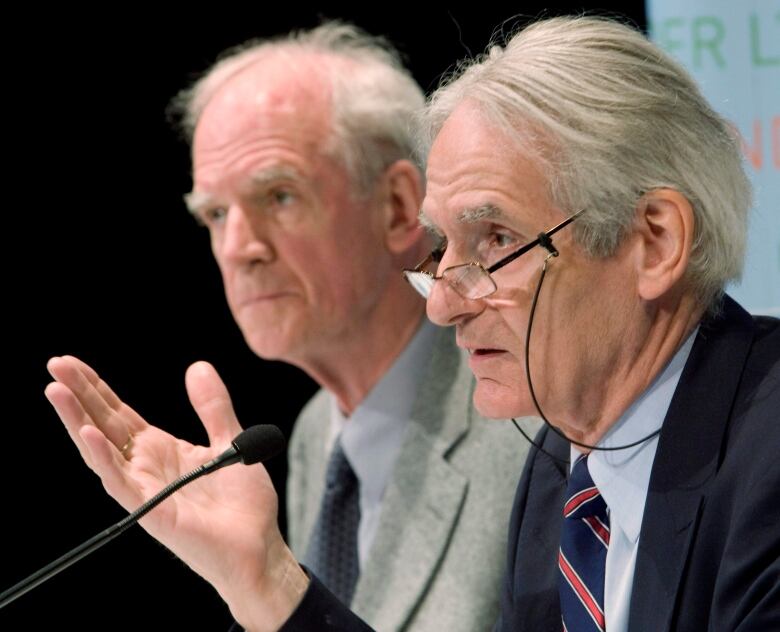Nearly two-thirds of Quebecers support public-sector ban on religious symbols, poll finds
But when asked detailed questions about how to apply the ban, public opinion is more divided

MostQuebecers are in favour of banning public-sector workers from wearing religious symbols, according to a CROP poll released ahead of the first legislative session under a Coalition Avenir Qubec government.
But a separate survey by Vox Pop Labs, conducted following the Oct. 1 election, suggestsQuebecers may be more divided when it comes to the details of how such proposals should be implemented.
Premier Franois Legault indicated after last month'selection that he will seek to bar civil servants in positions of authority from wearing religious symbolssuch as the kippa and hijab.
Not only would this apply to police officers, judges and Crown prosecutors, but also to school teachers, Legault said.
He justified his decision by saying it was the "position of a majority of Quebecers."

The CROP poll, taken between Nov. 14 and 19, estimated that 72 per cent of Quebecers supported banning visible religious symbols for judges, 71 per cent supported banning them for prosecutors and police officersand 65 per cent backed extending the ban to public-school teachers.
CROP also found widespread support (55 per cent) for leaving the crucifix in the National Assembly, another of Legault's promises. Twenty-eight per cent wanted to see it removed.
More divided on specifics
AlainGigure,CROP's president, saidthe results indicated unprecedentedly high levels of support for banning religious symbols.
"I think we can conclude that the average Quebecer really wants to remove religion from the public sphere, especially for people who hold positions of authority," Gigure said.
"The numbers are high but they are the product of a public discussion that has lasted since Bouchard-Taylor," he said, referring to the public commission into reasonable accommodation that wrapped up in 2008.
One of the commission's key recommendations was that civil servants in positions of authority shouldn't be allowed to wear visible religious symbols. That, however, didnot include teachers.
CROP's findings are based on an internet panel of 1,000 people. They were asked which government professions should be subject to a ban on religious symbols. The questionnairedid not specify which symbols would be at issue.
When data science firmVoxPop Labsrecently asked Quebecersmore detailed questions by about the specific religious symbols they object to, and in which professions, theanswers varied widely.

More divided on specifics
Vox Pop, which operates Vote Compass for CBC and Radio-Canada, surveyed 4,000 people about identity issues in the month after the election.
Respondents were shown images of various types of religious clothing and symbolsand asked to choose different situations where they should be banned.
The results suggested high levels of support 87 per cent for preventing police officers and judges from wearing the burka, a full body covering with only a mesh screen for the eyes.
But that number dropped to around 65 per cent for the turban and kippa.
The Vox Pop findings also suggested Quebecers are, in fact, divided about what religious symbols teachers should be allowed to wear in the classroom.
The kippa was opposed by 49 per cent, the turban by 51 per cent, the hijab by 52 per cent and a large cross by 53 per cent.
Vox Pop summarized its findings by noting a majority of survey participants 55 per cent backed the so-called Bouchard-Taylor consensus.

The research firm, though, also concluded that there is little support only 41 per cent for extending those limits to teachers, which the CAQ is proposing to do.
Moreover, the Vox Pop findings foundhigherlevels of support for removing the crucifix from the National Assembly than CROP.
They recorded 50 per cent of respondents saying they opposed its presence in the legislature, compared to 45 per cent who were OK with it there.
A Mainstreet poll published two weeks ago, meanwhile, found 42 per cent support for removing the crucifix, compared to the 50 per cent who preferred that it remain.
The National Assembly will begin a two-week session on Tuesdaythatwill bethe first opportunity for theCAQto advance its legislative agenda since it was elected in October with a decisive majority.
Legaultsaid recently his government will likely wait until next year to table legislation on religious symbols.













_(720p).jpg)


 OFFICIAL HD MUSIC VIDEO.jpg)
.jpg)



























































































